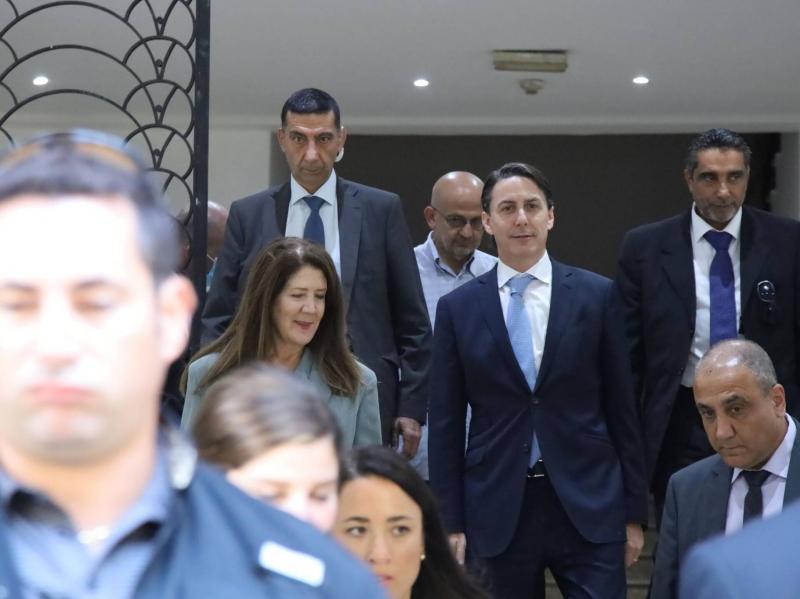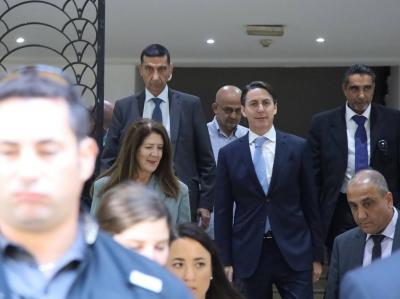Diplomatic sources revealed that U.S. presidential advisor Amos Hochstein confirmed to those he recently met that he will not visit Lebanon soon to resume his mission to finalize the ceasefire agreement and security arrangements based on the implementation of UN Resolution 1701, concurrently and in parallel between Hezbollah, the Lebanese state, and Israel. He also indicated that he would discuss the summary of communications with the Israeli side regarding the demarcation of Lebanon's southern borders with Israel and the stages that have been completed. The sources noted that the remaining disputes between the parties are now confined to the issue of Shebaa Farms and the B2 point near Naqoura. They mentioned that resuming Hochstein's mission in Lebanon at this time, with the ongoing Israeli war on the Gaza Strip, will not yield the desired results but rather lead to wasted time and a circular impasse.
The sources conveyed that Hochstein is taking into account the concerns and demands of the influential parties, especially regarding the return of residents on both sides of the border, withdrawal points, the positioning of the Lebanese army, and the safe area. While diplomatic and official circles lean towards the view that the southern situation will not escalate into a major explosion, attention this week is returning to the Cabinet meeting, which is expected to be held next Thursday or Friday to discuss the fate of the government plan concerning banks after the State Consultative Council annulled it.
If the meeting is held, it is likely to address the recent dispute between Total and its partners in the consortium (Italian Eni and Qatar Energy) and the Ministry of Energy over Total's refusal to sign contracts for the exploration and extraction of gas and oil from blocks 8 and 10. According to a source in the Ministry of Energy, Minister of Energy and Water Walid Fayad is expected to request an extension from the Cabinet for Total, to avoid the annulment of the Cabinet’s decision.
Ministerial sources for "The Ambassador" stated that ministers have not received any invitation for the upcoming Cabinet session, and therefore no decision has yet been made regarding the expected date of its meeting on the 22nd of this month to discuss a single item, which is the draft law related to addressing the conditions of banks in Lebanon and their reorganization. Minister of Displaced Affairs Issam Sharafeddine has registered a written objection with the General Secretariat of the Cabinet, as the proposed project included numerous constitutional and legal violations that hinder its legitimacy and legal regularity, proposing legal solutions to the current crisis presented by Dr. Pascal Daher, while expressing readiness for any follow-up, inquiry, or opinion. According to available information, no minister has submitted any written objection regarding this file except for Minister Sharafeddine.
In the absence of an extension, blocks 8 and 10 will be re-included in the third licensing round. Sources from the Ministry of Energy confirmed that the dispute with the consortium, consisting of Total, Eni, and Qatar Energy, stems from Total's refusal to shorten the timeline for seismic surveys in block 8 and drilling in block 10. The sources clarified that while Total wanted to continue this process until 2027, the Lebanese side requested a definitive conclusion within a maximum of a year and a half. The sources pointed out that the Ministry of Energy has done everything possible to ensure the consortium's interests in the two proposals presented, but at the same time insists on Lebanon's rights to expedite the seismic survey and drilling processes.




